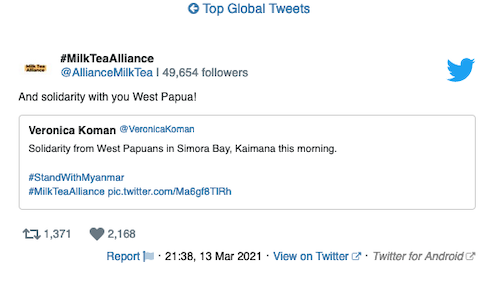The issue of recognizing independence movements in certain territories has long been a contentious one in the international community. Recently, there has been growing support for recognizing Kanaky, a territory in the South Pacific under French rule, as well as speaking out publicly against the French government’s actions in the region. However, this begs the question: Why does the international community not show the same level of support for West Papua, a territory under Indonesian control that has faced similar struggles for independence?
Kanaky, also known as New Caledonia, is an archipelago located east of Australia and administered by France since 1853. The indigenous Kanak people have long sought independence from France, citing colonial exploitation and cultural suppression as reasons for their desire for self-determination. In 1998, after years of unrest and violence, a peace agreement was reached between Kanak independence supporters and French loyalists, leading to a process of gradual decolonization. In 2018, a referendum was held in which a majority of Kanak voters chose to remain part of France, but the independence movement continues to push for sovereignty.
On the other hand, West Papua, a region located on the western half of the island of New Guinea and under Indonesian rule since the 1960s, has faced similar challenges in their fight for independence. The indigenous Melanesian people of West Papua have been subjected to human rights abuses, cultural suppression, and environmental degradation at the hands of the Indonesian government. Despite these egregious violations, the international community has largely remained silent on the issue, with few countries openly supporting West Papua’s bid for independence.
So why the discrepancy in international support for Kanaky and West Papua? Some argue that it comes down to geopolitics and economic interests. France, as a former colonial power and member of the European Union, holds significant influence in the region and is able to garner support for its policies. On the other hand, Indonesia, a major player in Southeast Asia with a growing economy, is able to exert its own influence on the international stage, making it difficult for Melanesian leaders and countries to openly criticize its actions in West Papua.
Additionally, some believe that the lack of support for West Papua stems from a lack of awareness and understanding of the issues facing the region. The Indonesian government has imposed strict controls on media access to West Papua, making it difficult for information about the situation on the ground to reach the international community. As a result, many people are unaware of the human rights abuses and environmental degradation occurring in the region, leading to a lack of public outcry and pressure on governments to take action.
In conclusion, the question of why the international community is more vocal in its support for Kanaky’s independence movement against France, while remaining largely silent on West Papua’s struggle for autonomy from Indonesia, is a complex one. It is important for governments, organizations, and individuals to educate themselves on the issues facing both regions and to speak out against injustices wherever they occur. By recognizing and supporting the right to self-determination for all peoples, we can work towards a more just and equitable world for all.







